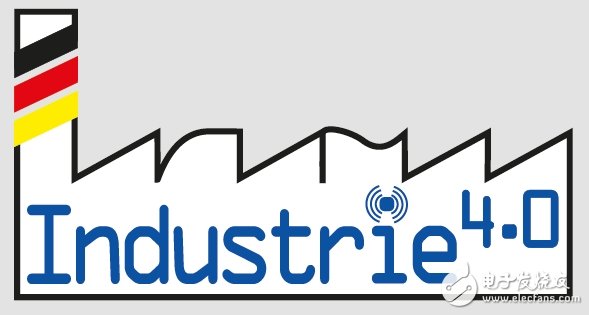Industry 4.0 is growing rapidly with the support of some governments and large enterprise groups, and related startups are also springing up. At the beginning, this is the crystallization of the wisdom and hard work of the German government. The term “Industry 4.0†created by it is also called “smart factory†or “advanced manufacturing†in some countries. Industry 4.0 is considered to be the fourth industrial revolution led by “smart manufacturing†after the era of steam, electricity and information technology, aiming to make full use of information and communication technology and cyberspace virtual systems – information physics systems (Cyber- PhysicalSystem) combines manufacturing to intelligent transformation. Industry 4.0 means connecting people, information and objects, and the machine enters a unified intelligent network. It is expected that the technology can automatically debug the production process, rhythm, automatically repair faults, and manufacture products in a smarter and more personalized way. . Recently, Huawei and NXP announced an agreement to jointly expand the industry 4.0 market. The two companies decided to join hands to develop new products and industry standards through Huawei's industrial manufacturing capabilities and NXP's connectivity and security technologies. They announced in the agreement: "Huawei and NXP will cooperate in the following areas: physical layer, network layer and network security. This cooperation will integrate Huawei's ICT (information, communication and technology) infrastructure and connectivity. The solution and NXP's Industry 4.0 secure connectivity solution. The collaboration between the two will focus on applications in Industry 4.0, such as automated plants, logistics 4.0, wireless security connectivity and sensor networks." China may be a major customer of the Industry 4.0 movement. With this in mind, the two companies said they will develop a world-leading Industry 4.0 network solution that will create sustainable value for customers in Greater China and the global marketplace." China plans to invest $1.25 trillion over the next three years to modernize and transform the country's industries in an effort to reshape the country's vast manufacturing industry as a model of efficiency and flexibility. The key factor in making this shift is energy efficiency. Today, China's manufacturing industry has a very high demand for energy. A large amount of electricity is supplied by thermal power stations, which in turn brings a lot of industrial pollution. Of all the electricity generated, industrial motors consume 46% of them. If these motors are replaced with more efficient and energy-efficient machines and controlled with better control systems, it is believed that the power consumption in the industry will be greatly reduced. We have been able to feel part of the Industry 4.0 revolution. The Internet of Things is infiltrating into the industrial, commercial and personal services sectors. For example, sensors can be installed at various points in the production line and supply chain, and logistics can be tracked using sensors. The Internet of Things is only transforming plant control and production structures, while also increasing the flexibility of the production process. The rise of 3D printing is also helping Industry 4.0. For the factory, you don't have to spend huge sums of money to make expensive prototypes in other places. You just need to print your own files with a 3D printer. In addition, this allows the plant to be highly customized, even for small orders, without affecting productivity, making multivariable production a reality. "To achieve Industry 4.0, there are at least three areas that need to be met," said TIm Dawson, senior director of industrial automation at IHS Technologies. First: more system-level control and more distributed control; second: universal perception; third: efficient big data analysis. Also mentioned are security concerns. Both the Iranian nuclear power plant and the Siemens factory have been attacked by hackers, which has led some in the industry to believe that it is safe to not allow the factory's network to access the external network. In 2011, the Duqu worm was discovered, which was able to collect information from industrial manufacturing. Roel Schouwenberg, senior anti-virus researcher at Kaspersky Lab, said: "We have seen that many industrial control systems are connected to the Internet. But they don't change the default password, so you only need to search the Internet for this password, you get Control permissions for these systems." NXP will provide the necessary tools for security. The Dutch company is one of the co-inventors of NFC technology and has always been Europe's top role in secure communication and hardware encryption using secure components. It is believed that an embedded control system (similar to a SIM card for a mobile phone) that uses a particular key and security component can reduce the need for complex passwords and additional security measures. Another problem is that the industry is still reluctant to change. Although many of the technologies currently used in Industry 4.0 already exist, machine builders are not eager to implement this technology; not to mention that few suppliers are able to offer comprehensive, easy-to-implement solutions. The combination of Huawei and NXP solutions will provide a framework for most machine manufacturers to be referenced. If Industry 4.0 is used properly, then the manufacturing efficiency of the manufacturing industry will usher in a qualitative leap, enabling small local producers to face the competition of international giants and bring flexible and personalized manufacturing to the entire manufacturing sector. Small computer system interface (SCSI) is an independent processor standard for system level interfaces between computers and intelligent devices (hard disks, floppy drives, optical drives, printers, scanners, etc.). SCSI is an intelligent universal interface standard. HPCNS SCSI Section ShenZhen Antenk Electronics Co,Ltd , https://www.antenkwire.com